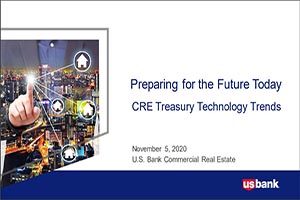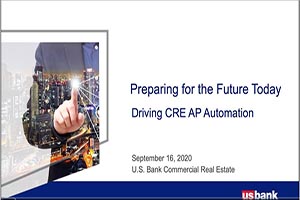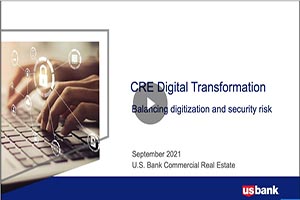
Trends in economics, immigration and mobility policy

Putting home ownership within reach for a diverse workforce

Administrator accountability: 5 questions to evaluate outsourcing risks

High-yield bond issuance: 5 traits lawyers should look for in a service provider

Easier onboarding: What to look for in an administrator

3 tips to maintain flexibility in supply chain management

Insource or outsource? 10 considerations

4 questions you should ask about your custodian

Refining your search for an insurance custodian

Service provider due diligence and selection best practices

Preparing for your custodian conversion

Evaluating interest rate risk creating risk management strategy

Webinar: CRE technology trends

Complying with changes in fund regulations

Business risk management for owners of small companies

Webinar: CSM corporation re-thinks AP

Webinar: AP automation for commercial real estate

Addressing financial uncertainty in international business

5 winning strategies for managing liquidity in volatile times

The surprising truth about corporate cards

The future of financial leadership: More strategy, fewer spreadsheets

Employee benefit plan management: trustee vs. custodian

Choosing your M&A escrow partner

Tapping into indirect compensation to recruit foreign talent

Why other lenders may be reaching out to your employees

High-cost housing and down payment options in relocation

Why retail merchandise returns will be a differentiator in 2022

The client-focused mindset: How to network effectively

The client-focused mindset: Adapting to differing personality types

The client-focused mindset: What do clients expect?

Webinar: CRE Digital Transformation – Balancing Digitization with cybersecurity risk

Flexibility remains essential for public sector workforces

Overcoming the 3 key challenges of a lump sum relocation program

Crypto + Relo: Mobility industry impacts

For today's relocating home buyers, time and money are everything

Empowering team members

10 tips on how to run a successful family business

Business tips and advice for Black entrepreneurs

Opening a business on a budget during COVID-19

Talent acquisition 101: Building a small business dream team

How to test new business ideas

How to get started creating your business plan

How to redefine challenges with business collaboration

The role of ethics in the hiring process

8 ways to increase employee engagement

The costs of hiring a new employee

How to reward employees and teams who perform well

How to hire employees: Employee referral vs. external hiring

Give a prepaid rewards card for employee recognition

5 steps for creating an employee recognition program

Tips for building a successful customer loyalty program

Checklist: Increase lead generation with website optimization

Omnichannel retail: 4 best practices for navigating the new normal

Is your restaurant Google-friendly?

Gift cards can extend ROI into 2022

What you should know about licensing agreements

3 simple brand awareness tips for your business

How a small business owner is making the workplace work for women

5 principles for avoiding ethics pitfalls on social media

5 tips for helping employees raise ethics concerns

The growing importance of a strong corporate culture

7 uncommon recruiting strategies that you may not have tried yet

Business credit card 101

Meet your business credit card support team

How to apply for a business credit card

How jumbo loans can help home buyers and your builder business

Prioritizing payroll during the COVID-19 pandemic

Break free from cash flow management constraints

5 tips for managing your business cash flow

Improve online presence your business

How Shampoo’ed is transforming hair and inspiring entrepreneurs

The San Francisco bridal shop that’s been making memories for 30 years

How Al’s Breakfast is bringing people together

In a digital world, Liberty Puzzles embraces true connection

Celebrity Cake Studio’s two decades of growth and success

How a group fitness studio made the most of online workouts

How Wenonah Canoe is making a boom in business last

How community gave life to lifestyle boutique Les Sol

How a travel clothing retailer is staying true to its brand values

How a bar trivia company went digital during COVID-19

How to build a content team

Use this one simple email marketing tip to increase your reach

How (and why) to get your business supplier diversity certification

Year-end financial checklist

How I did it: Joined a board of directors

5 tips for being a great board member

Tips for navigating a medical hardship when you’re unable to work

Webinar: Uncover the cost: International trip

Tips to overcome three common savings hurdles

How having savings gives you peace of mind

Helpful tips for safe and smart charitable giving

Allowance basics for parents and kids

30-day adulting challenge: Financial wellness tasks to complete in a month

5 tips to use your credit card wisely and steer clear of debt

Travel for less: Smart (not cheap) ways to spend less on your next trip

Real world advice: How parents are teaching their kids about money

How to stop living paycheck to paycheck post-pay increase

Practical money tips we've learned from our dads

6 ways to spring clean your finances and save money year-round

How to cut mindless spending: real tips from real people

How to increase your savings

5 tips to use your credit card wisely and steer clear of debt

Managing the impacts of appraisal gaps in a hot housing market

How to spot a credit repair scam

